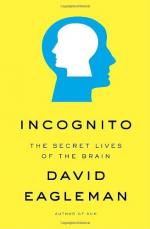
|
| Name: _________________________ | Period: ___________________ |
This test consists of 15 multiple choice questions and 5 short answer questions.
Multiple Choice Questions
1. What seems natural to most people?
(a) Thinking.
(b) Processing physical data.
(c) Seeing.
(d) Believing what we see is real.
2. When does Arthur Alberts travel from New York to Africa?
(a) 2004.
(b) 1989.
(c) 1997.
(d) 1949.
3. If someone moves slightly towards the word dislike before choosing the word like, what does that indicate?
(a) The person is undecided.
(b) The experiment is weighted unfairly.
(c) A conflict between the unconscious and conscious minds.
(d) The experiment is set up poorly.
4. How do hallways challenge May when he regains his sight?
(a) The apparent convergence of the walls in the distance confuses him.
(b) The way the floor and walls meet at angles is upsets his sense of balance.
(c) The feeling of confinement with the walls so close bothers him.
(d) They are no challenge since he remembers how to interpret them from when he used to see.
5. To what are innumerable facets of ourselves linked?
(a) The limbic system.
(b) The nervous system.
(c) The circulatory system.
(d) The heart and brain.
6. What happens when one's brain changes?
(a) The person is no longer functional.
(b) The person cannot change.
(c) The person changes.
(d) The person can become a genius.
7. Who is one person the author mentions as understanding the arrangement between the conscious and unconscious mind?
(a) Johnson.
(b) Ericksson.
(c) Freud.
(d) Jung.
8. What does each brain cell send to other cells?
(a) Electrical impulses.
(b) Messages for interpretation.
(c) Food.
(d) Oxygen.
9. What does each human brain cell contain in its entirety?
(a) A way to manufacture food.
(b) A way to process information.
(c) The human genome.
(d) A way to produce energy.
10. What gap does Eagleman explore?
(a) Between what your eyes see and what your brain shows you.
(b) Between what you want to see and what is actually there.
(c) Between what your brain knows and your mind is capable of accessing.
(d) Between what your brain receives in impulses and what it can interpret.
11. What is the most important part of seeing?
(a) How seeing enables social interaction.
(b) How seeing stimulates the brain to be more productive.
(c) What the unconscious brain does with the information.
(d) How one uses the information gained by sight.
12. How much of our brain is devoted to sight?
(a) 1/10.
(b) 1/20.
(c) 1/15.
(d) 1/3.
13. How many connections does a typical neuron make to neighboring neurons?
(a) 1,000.
(b) 10.
(c) 10,000.
(d) 100.
14. What does Eagleman say is the correct way to do this motion?
(a) Steer to the left, then straighten the wheel, then turn to the right.
(b) Steer to the right, then straighten the wheel, then turn to the left.
(c) Move first clockwise, then counterclockwise.
(d) Use a reference point to scribe the circle.
15. About how many pounds does a brain weigh?
(a) 5.
(b) 2.
(c) 3.
(d) 6.
Short Answer Questions
1. What does the novice sorter eventually do in order to become an expert sorter?
2. What illustrations does Eagleman present to show the concept from question 44?
3. What tells us that we experience the world as it actually exists?
4. How do the eyes of blind people who recover their sight work compared to persons who are sighted since birth?
5. What do most of us notice in the world around us?
|
This section contains 608 words (approx. 3 pages at 300 words per page) |

|




